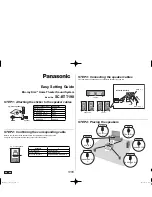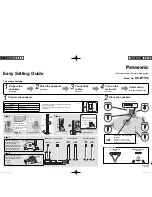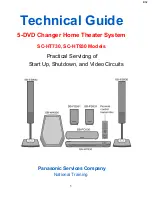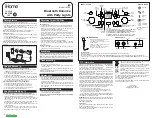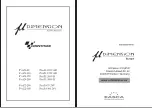
Appendix: Acoustics
Dynaudio Professional AIR reference manual – 2014-09-28
120
Line-up and calibration
Acoustic summation of audio signals
When summing two sound sources (for example, two
monitors), the resulting total sound level depends on
both the signal and the acoustics. The sound sources
can be correlated or uncorrelated. The listening posi-
tion (or measurement position) can be either in the di-
rect sound field or in the diffuse sound field.
In the
direct sound field,
there is only one sound di-
rection. This direct field exists either in the open, in a
reflection-free room or close to the monitors.
The
diffuse sound field
occurs in a room when you are
so far away from the monitors that the portion of direct
sound is less than the sum of all the reflections.
The distance from the monitors where the direct sound
field and the diffuse sound field are equally large is
called the
critical distance
. In a control room, it can typ-
ically be 1 to 3 meters. The near field in front of the
monitors can be regarded as a direct field.
If all monitors are in phase, the sum of the sound pres-
sure from two monitors playing at the same level is 3 dB
– unless the signals are correlated (identical) and the
sum is measured in the direct field. In this case, the
resulting sound pressure level is 6 dB higher than the
level of the individual monitors.
Fig. 80: Correlated (left) and uncorrelated (right)
signals
Acoustic calibration of multi-channel systems
When working with sound for film, calibration of the
acoustic sound levels has been a requirement for many
years, but it has not been particularly common in oth-
er branches of the sound industry. However, with the
widespread use of multi-channel formats for all forms of
music and film presentation in the home, the benefits of
controlling levels have become obvious in recent years.
It is important to differentiate between production for
the cinema and production for 5.1 channel reproduction
in the home based upon ITU 775.
Calibration of 5.1 in an ITU-775 arrangement
In a 5.1 system based on the ITU arrangement, all main
channels are operated under the same conditions:
There is one monitor per channel, and each monitor is
placed at the same distance from the listener. However,
there is no international agreement on the level or the
bandwidth of the noise signals that should be used for
acoustic calibration. Pink noise is a good starting point,
as it includes all frequencies. However, it is impractical
due to its “unsettled” character, which makes it difficult
to measure at low frequencies.
Summary of Contents for AIR 15
Page 1: ...Dynaudio Professional AIR Reference manual 2014 09 28 ...
Page 7: ... Before you begin Dynaudio Professional AIR reference manual 2014 09 28 4 Before you begin ...
Page 10: ... The AIR concept Dynaudio Professional AIR reference manual 2014 09 28 7 The AIR concept ...
Page 32: ... AIR setups Dynaudio Professional AIR reference manual 2014 09 28 29 AIR setups ...
Page 66: ... AIR Remote Dynaudio Professional AIR reference manual 2014 09 28 63 AIR Remote ...
Page 85: ... Cables Dynaudio Professional AIR reference manual 2014 09 28 82 Cables ...
Page 88: ... Presets Dynaudio Professional AIR reference manual 2014 09 28 85 Presets ...
Page 90: ... Reset procedures Dynaudio Professional AIR reference manual 2014 09 28 87 Reset procedures ...
Page 92: ... Error messages Dynaudio Professional AIR reference manual 2014 09 28 89 Error messages ...
Page 94: ... Warranty Dynaudio Professional AIR reference manual 2014 09 28 91 Warranty ...
Page 126: ... Links Dynaudio Professional AIR reference manual 2014 09 28 123 Links ...
Page 128: ... Links Dynaudio Professional AIR reference manual 2014 09 28 125 ...
























